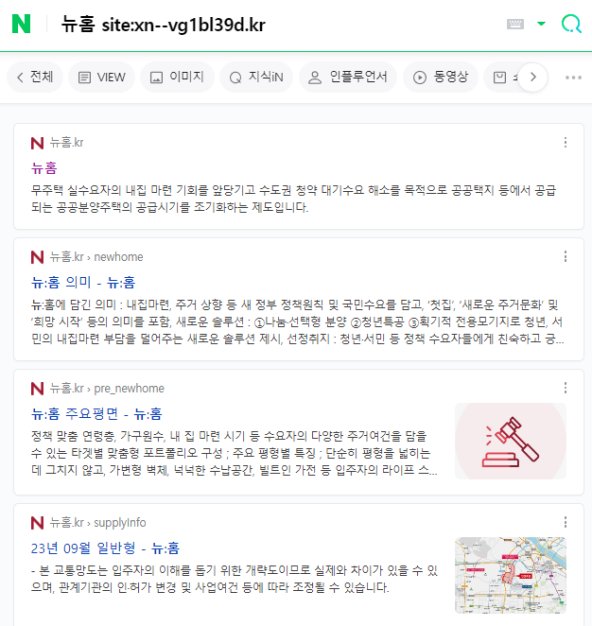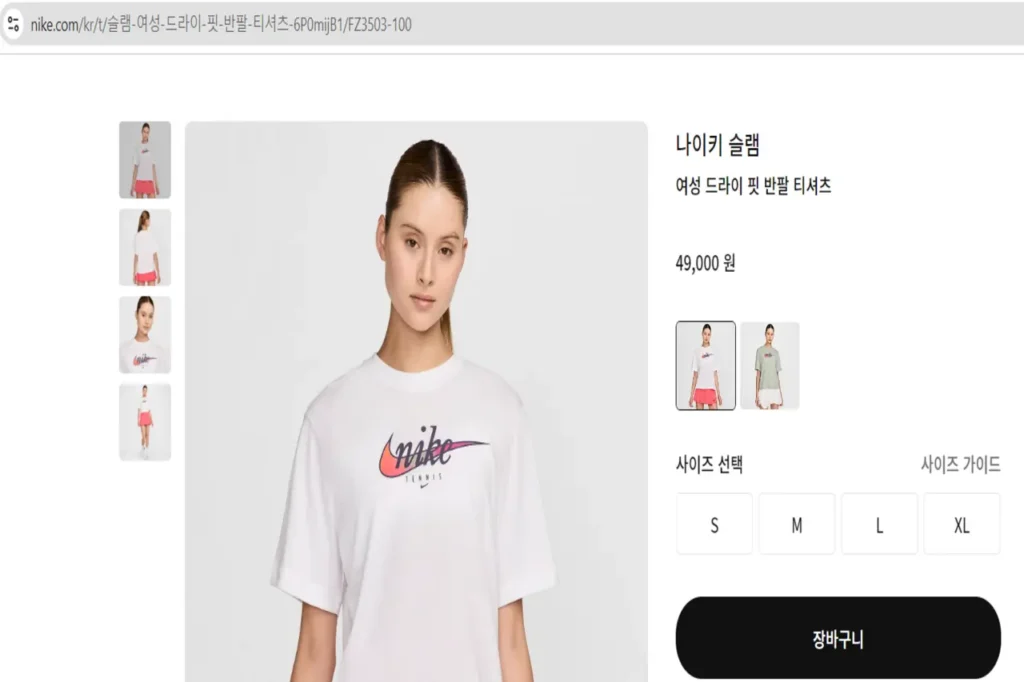As the allure of the Korean market grows, many foreign companies are making their move. But in this process, one crucial element often gets overlooked: SEO. Why is it so important?
Korea is an internet powerhouse. Most consumers rely heavily on online searches when making purchasing or investment decisions. Therefore, ranking high in search results directly impacts revenue. This is where SEO plays a pivotal role.
However, many foreign companies set their Korean SEO strategies without fully understanding the nuances of the Korean market, leading to mistakes.
One of the common Korean SEO mistakes that foreign companies make when entering the Korean market is using Korean URLs. We’ll focus on this misconception and explore more effective Korean SEO strategies.
Korean SEO mistake: The use of Korean URLs
Foreign companies often think, “We’re targeting the Korean market, so Korean URLs must be good, right?” Unfortunately, this is a significant misconception.
Why are Korean URLs problematic?
- URL Breakage: Korean URLs are converted to Punycode, an encoding system that represents Unicode characters in ASCII, when used in the domain name system. For example, ‘뉴홈.kr’ becomes ‘xn--vg1bl39d.kr’. While this encoding allows Korean characters to be used in URLs, it can impact user experience by making the URLs less readable and recognizable, potentially causing confusion when shared.

- Browser Compatibility: Some browsers may not properly recognize Korean URLs, potentially losing potential customers.
- Search Engine Crawling Issues: Search engine bots may struggle to crawl Korean URLs, negatively impacting search result visibility.
The Advantages of English URLs when working on Korean SEO
So, why are English URLs a better choice?
- Stable Compatibility: English URLs work reliably across all browsers and systems.
- Global Accessibility: Even when targeting the Korean market, it’s wise to consider global accessibility. English URLs make this possible.
- SEO-Friendly: Search engines can more easily understand and index English URLs, benefiting your overall Korean SEO efforts.
Effective Korean SEO Strategies
Now, what should you do? Here are some effective Korean SEO strategies for the Korean market:
- Combine English URLs with Korean Keywords: Keep your URLs in English, but strategically place Korean keywords within your page content. For example, use this URL structure: www.yourcompany.com/whitening-cream, while including Korean keywords like “미백 크림” in your page content.
- Optimize Metadata: Write your title tags and meta descriptions in Korean. These are crucial as they appear in search results.
- Localize Content: Simply translating English content isn’t enough. Understand Korean culture and business practices, and reflect these in your content.
- Optimize for Korean Search Engines: Don’t just focus on Google. Optimize for major Korean search engines like Naver and Daum.
- Mobile Optimization: Korea has an extremely high mobile usage rate. Therefore, mobile-friendly website design and content structure are essential for successful Korean SEO.
Other SEO Mistakes to Avoid
Besides using Korean URLs, there are other Korean SEO mistakes that foreign companies often make. It’s crucial to avoid these as well.
- Keyword Stuffing: Cramming in keywords doesn’t help SEO. It can even be considered spam. Use keywords naturally.
- Low-Quality Content: Content that’s high in quantity but low in quality doesn’t help. Create high-quality content that provides real value to users.
- Ignoring Page Speed: Page loading speed is a crucial SEO factor. Improve page speed through image optimization, caching, and other techniques.
- Neglecting Meta Tags: Title tags and meta descriptions are SEO basics. Write unique and descriptive meta tags for each page.
Real-World Application: The Nike Korea Example
Let’s take a real-world example to illustrate the impact of using Korean URLs in Korean SEO. Nike, a global brand, has a dedicated Korean website. While they are a leader in digital marketing, even they aren’t immune to the pitfalls of Korean URLs.
Consider this product URL from Nike Korea:

Original URL: 슬램-여성-드라이-핏-반팔-티셔츠-6P0mijB1/FZ3503-100
When copied, this URL appears as:
Encoded URL: https://www.nike.com/kr/t/%EC%8A%AC%EB%9E%A8-%EC%97%AC%EC%84%B1-%EB%93%9C%EB%9D%BC%EC%9D%B4-%ED%95%8F-%EB%B0%98%ED%8C%94-%ED%8B%B0%EC%85%94%EC%B8%A0-6P0mijB1/FZ3503-100
This encoding has far-reaching implications beyond mere URL breakage:
- User Experience Impact: When users see such an encoded URL, it can create confusion and frustration. The URL becomes nearly impossible to remember or manually type, leading to a poor user experience that can drive customers away.
- Brand Perception: These complex URLs can inadvertently communicate a lack of attention to local user needs.
- SEO Complications: While the technical aspects of SEO, such as search engine crawling, are important, the broader SEO implications for global brands are even more critical. Korean consumers expect a seamless digital experience. When they encounter issues with sharing or accessing content due to complex URLs, it can reduce engagement and, ultimately, the effectiveness of the brand’s online presence in Korea.
Optimized Korean SEO Strategy for Nike Korea
Instead of using Korean characters in URLs, Nike could improve their Korean SEO by adopting English URLs combined with Korean keywords within the page content. For example:
- Optimized URL: https://www.nike.com/kr/t/slam-womens-dri-fit-short-sleeve-t-shirt/FZ3503-100
- Page Content: Include Korean keywords such as “슬램 여성 드라이 핏 반팔 티셔츠” within the product description and metadata.
This approach would make the URL more user-friendly, easier to share, and more compatible across different browsers and platforms, all while maintaining strong Korean SEO performance.
Conclusion: SEO is an Ongoing Process
As the Nike Korea example shows, even top brands can fall into the trap of using Korean URLs, which can hinder their Korean SEO efforts. By opting for English URLs and strategically incorporating Korean keywords within content, companies can enhance user experience and improve their search engine rankings.
Remember, Korean SEO isn’t a one-time task. Continuous monitoring and improvement are necessary to stay ahead of the competition in the ever-changing digital landscape. With the right strategy, you can achieve significant success in the Korean market.
At Growth Marketing Agency, we have decades of experience working in SEO across diverse markets. In our experience, pages with Korean URLs have consistently underperformed, often leading to issues in user engagement and search engine visibility. We’ve seen firsthand how adopting English URLs and incorporating localized content can dramatically improve results.


